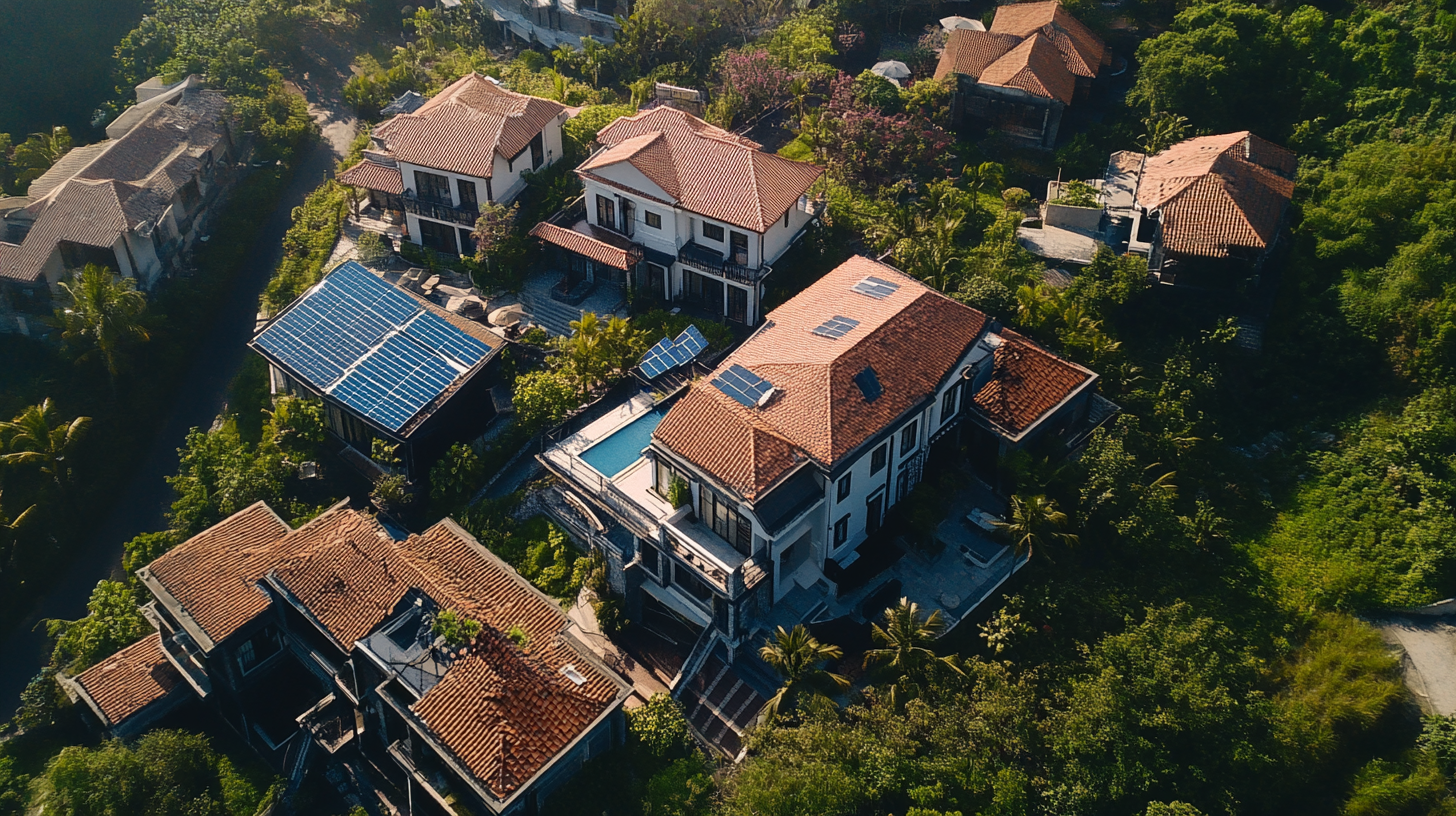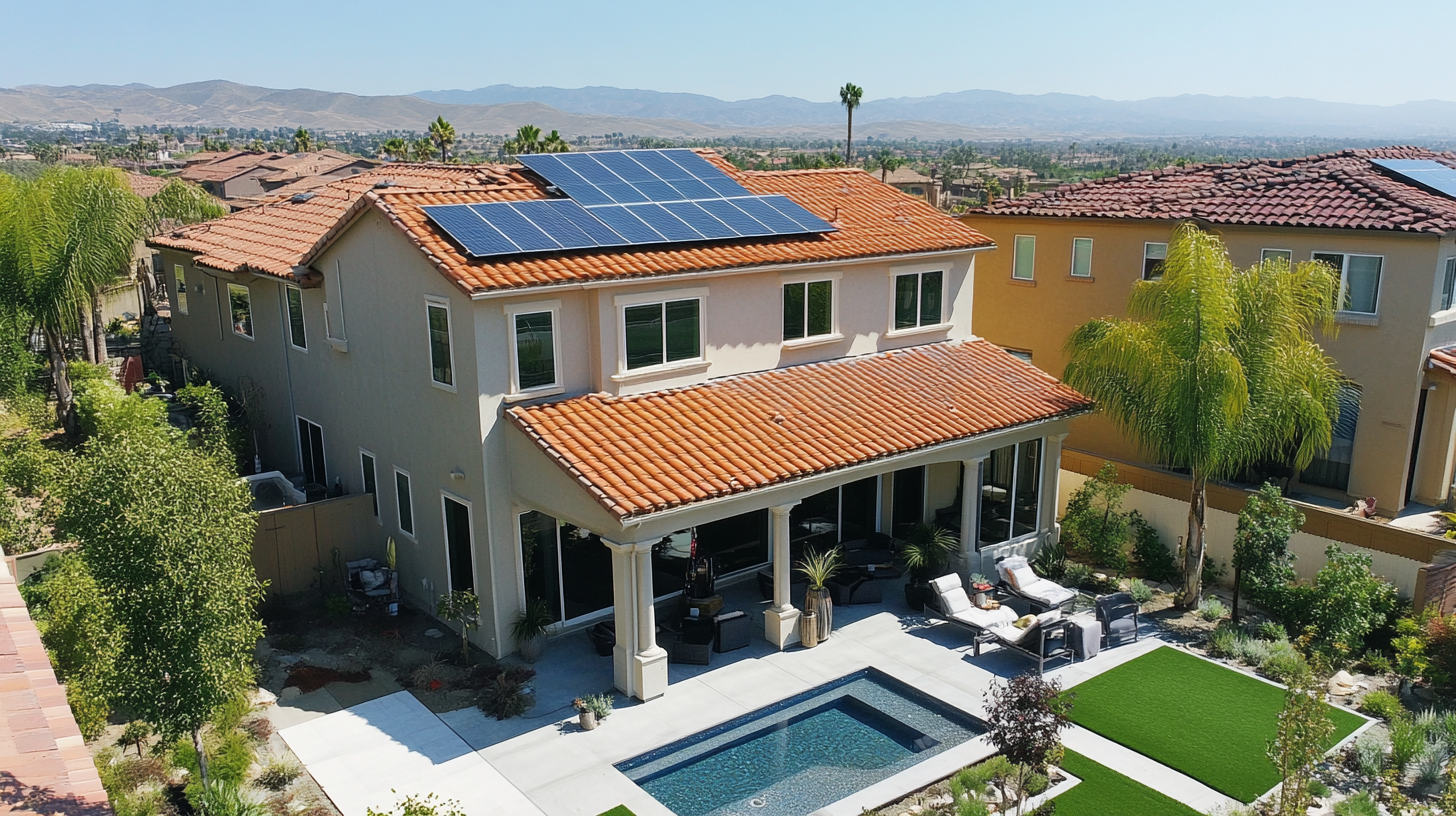Understanding the Benefits of Power Smart Solar for Global Buyers
The transition to renewable energy sources is no longer a choice but a necessity for global sustainability. According to the International Energy Agency (IEA), solar energy has become one of the fastest-growing energy sources worldwide, with global solar capacity increasing from 40 gigawatts in 2010 to over 800 gigawatts by 2020. This rapid expansion highlights the urgency with which industrial and residential buyers are seeking efficient solutions. In this context, Power Smart Solar emerges as a revolutionary option for energy consumers aiming to harness the power of the sun while reaping economic and environmental benefits.
Power Smart Solar not only contributes to reducing carbon footprints, but it also offers significant financial advantages. The Global Solar Energy Market report predicts that the sector will grow at a compound annual growth rate (CAGR) of 20% through 2025, driven by advancements in solar technology and increasing affordability. As global buyers increasingly look to invest in sustainable energy alternatives, understanding the multifaceted benefits of Power Smart Solar becomes essential. This blog will delve into how Power Smart Solar stands to empower consumers and encourage a greener future.

Key Advantages of Power Smart Solar for International Markets
Power Smart Solar presents a range of key advantages for international markets, making it an attractive option for global buyers looking to invest in renewable energy. One of the most significant benefits is its efficiency in energy conversion. According to a report from International Renewable Energy Agency (IRENA), solar technology has seen an average efficiency improvement of around 1% per year, leading to more productive energy systems that can adapt to varying geographical conditions. Moreover, the scalability of Power Smart Solar solutions allows countries to customize installations to suit their specific needs, from residential applications to large-scale commercial projects. This flexibility is vital in developing regions where energy needs can vary widely. Industry analysis indicates that countries with lower solar penetration rates, such as some in Africa and Southeast Asia, could benefit immensely from implementing solar technology to offset reliance on fossil fuels, a transition shown to potentially reduce energy costs by up to 80% in the long run. Additionally, the financial incentives for solar adoption are increasing globally. According to the Solar Energy Industries Association (SEIA), governments are increasingly providing subsidies and incentives, which can enhance the return on investment dramatically. For instance, installations in countries that offer tax credits or feed-in tariffs can see payback periods shortened to as little as three years, making solar an economically viable option for those looking to capitalize on green energy trends. In conclusion, Power Smart Solar not only supports sustainable practices but also aligns with economic strategies for international buyers aiming to invest in the future of energy. The combination of improved technology, customizable solutions, and growing financial support positions solar energy as a pivotal player in the global energy market.

How Power Smart Solar Enhances Energy Efficiency for Buyers
Power Smart Solar is revolutionizing energy efficiency for global buyers by providing innovative solar solutions that align with the growing demand for sustainable energy sources. The adoption of solar power systems, particularly in regions like Malaysia, demonstrates the tangible benefits of reducing energy costs while simultaneously promoting environmental responsibility.
In Malaysia, for example, homeowners who install solar power systems can significantly lower their electricity bills. According to recent reports, effective solar installations can lead to a reduction in energy costs by up to 70%. This financial relief is especially relevant in a country with increasing energy prices and a growing need for renewable energy initiatives. Furthermore, Power Smart Solar not only offers cost-saving benefits but also enhances the overall energy efficiency of homes, translating to lower carbon footprints and a contribution to combating climate change.
The technology behind solar panels has advanced significantly, with modern systems being more efficient and reliable than ever before. Reports indicate that today’s residential solar panels convert approximately 22% of sunlight into usable electricity, a notable increase from earlier generations. With easy installation processes and flexible financing options, more buyers are now inclined to invest in solar technology, making energy independence more achievable. As global buyers seek ways to enhance energy efficiency, Power Smart Solar stands out as a viable option that meets both economic and environmental goals.

Cost Savings and Long-Term Returns with Power Smart Solar
As the world increasingly recognizes the pressing need for sustainable energy solutions, solar power has emerged as a critical player in this transition. The partnership between various entities in Australia showcases the growing trend of large-scale solar installations, which not only support local economies but also contribute significantly to greenhouse gas reduction. By embracing solar technology, countries like Australia are paving the way for a cleaner energy future, aligning with global efforts to combat climate change.
Investing in solar energy represents a strategic opportunity for global buyers looking to achieve long-term savings and returns. The initial costs of solar installations may seem steep; however, the long-term benefits far outweigh these upfront investments. With advances in technology, solar panels are becoming more efficient and cost-effective, leading to reduced electricity bills and enhanced energy independence. For organizations and communities, the shift to solar power translates into stable energy costs and the potential for profit through energy credits and incentives.
Moreover, the integration of sustainable practices within businesses is increasingly becoming a crucial expectation from consumers. Embracing renewable energy solutions like solar not only meets these demands but also positions companies as leaders in sustainability. As the renewable energy landscape continues to evolve, those who invest in solar now will not only reap economic benefits but also play an active role in creating a more sustainable and resilient future for everyone.

The Environmental Impact of Adopting Power Smart Solar Solutions
The adoption of Power Smart Solar solutions holds significant promise for the environment, offering a pathway toward sustainable energy practices. By harnessing the sun’s abundant energy, these solutions reduce dependency on fossil fuels, which are leading contributors to greenhouse gas emissions. Transitioning to solar energy not only mitigates climate change but also promotes cleaner air and water, benefitting both ecosystems and human health.
Moreover, Power Smart Solar systems often come equipped with advanced technology that maximizes energy efficiency. This means reduced waste and optimal use of resources. By implementing such systems, global buyers can actively contribute to a greener planet while enjoying the economic advantages of lowered energy costs. Additionally, many regions are seeing increased job creation in the renewable energy sector, further enhancing the positive impact of adopting solar technologies.
As countries strive to meet international climate goals, the role of Power Smart Solar becomes even more vital. By supporting renewable energy initiatives, global buyers participate in a collective effort to combat environmental degradation. The shift towards solar solutions represents not just an energy transition but a profound commitment to preserving our planet for future generations.
Innovation and Technology Trends in Power Smart Solar Systems
The landscape of solar energy is evolving rapidly, driven by technological innovations that are reshaping the way we harness sunlight for power generation. As we look ahead to 2025, several key trends are emerging within the realm of Power Smart Solar systems. Notably, advancements in solar photovoltaic (PV) technology are allowing for higher efficiency rates, enabling consumers to generate more energy with fewer panels. This shift is crucial as demand for renewable energy continues to rise amid increasing climate concerns and the pursuit of sustainable energy solutions.
In addition to efficiency improvements, the emergence of AI-driven management systems is modernizing solar energy operations. These intelligent systems enhance monitoring and maintenance, allowing users to optimize their energy production and minimize downtime. By integrating smart technology into solar installations, buyers gain not just energy but also valuable insights that can lead to cost savings and improved performance.
Moreover, bifacial solar modules are gaining traction, providing an innovative approach by capturing sunlight from both sides of the panels. This technology maximizes energy output by utilizing reflected light from surrounding surfaces, pushing the boundaries of what solar installations can achieve. As rural energy communities continue to develop, the adoption of these next-generation technologies will play a pivotal role in creating resilient energy systems that cater to local needs while contributing to global sustainability goals.
